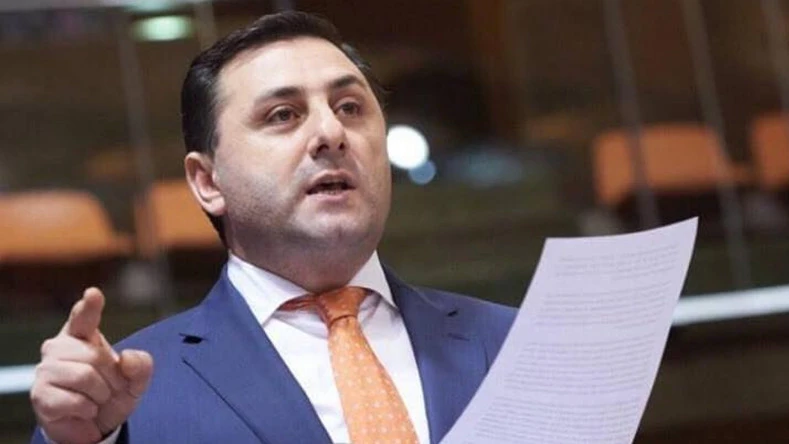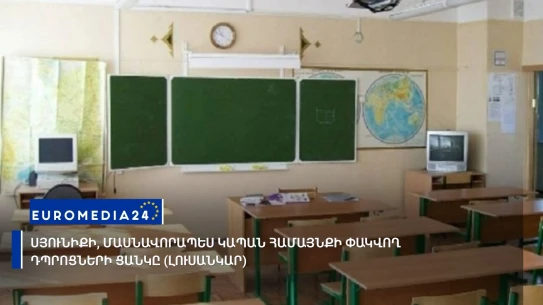For several years, everyone has been interested in one question: what happened to our people, why did it become so indifferent, etc.? Without pretending to say that the analysis given below gives the correct and even more comprehensive and scientific explanation of the issue, I think it will help to understand the most important nuance of what is happening.
Former NA deputy Samvel Farmanyan wrote about this.
"You see, the human identity of each of us is made up of 3 key layers.
Layer 1 is self-identification, when a person perceives himself as an individual: Aram, Ivan, Jack, Jose, etc. This is characteristic of everyone. Let's call this identity 1, the layer of individual self-identification (individualism). This layer of identity is most dominant in Western societies.
That is the reason why many Armenians, for example, when they find themselves in Western societies, have the same feeling that the societies there are egocentric: every person is in his own pain, there is no friendship and friendship, there is no contact, etc. These are popular interpretations of this phenomenon.
To put it simply, the most dominant layer of identity in Western societies is individual self-identification, individualism. Let's move on.
The second layer of our identity is the group identity. What is it?
Each of us, in addition to identifying with himself, that is, he is Aram, Ivan or Jack, also identifies with some groups. Depending on the environment in which a person is formed, these group identities can be very different. For example, one identifies himself with the place of birth or the district where he lives: I am from Gyumeti, I am from Masiv, etc. With his nationality, I am Asatryan, I am from Khachoents. With religious group: I am Apostolic, I am Sunni, I am Buddhist, etc. I am an employee of the company where I work: Sony (by the way, many Japanese people to this day, when they meet others, introduce themselves not only by their first name, but also by the company they work for).
Even with the football club, I am a Real Madrid fan.
This series is truly endless, depending on which people we are talking about, due to historical and cultural heritage, geography and other key factors. The 3rd layer of identity is ethnic/national identity, when a person separates from individual self-identification with certain groups. from associating himself, he also considers himself a representative of any people, nation or state. One says I'm Armenian, the second says I'm Italian, the third says American, the fourth says Bushman, etc.
That is, in the consciousness of each of us there is also that third layer: self-identification with the largest ethnic group, nation or state. The identity of each person is three-layered.
Due to dozens of circumstances, these layers of identity have different meanings in the individual's consciousness and are in a very different and constantly changing, transforming ratio, correlation. Perhaps the most dictating and important layer of modern Swedish thinking and behavior is the individualistic layer of identity, for those living in a Chechen aul perhaps the group identity of their place of residence, in the case of the Palestinians perhaps the ethnic/national layer.
Here, dictated by historical, cultural, geographical and other realities, the layers of group and ethnic/national identity, traditionally emphasized and emphasized in the identity of the Armenian people, had the greatest importance.
You have come across many times that Armenians of our and the older generation attach more importance to the neighborhood, yard, neighborhood, community, family, friendship, Armenianness, etc. In short, the group and ethnic/national component in the identity structure of Armenians has traditionally had the greatest importance. That is why we have often been called conservative, conservative, patriarchal, etc.
Now, due to two key and other secondary factors, a revolutionary transformation is taking place in the correlation of these three layers of the identity of Armenians today. And this is the biggest and most fundamental thing that is happening today, escaping from the eyes of politicians, experts, journalists and many others.
No matter how surprising it may seem, only the government talks about this once in a while and in a context that is beneficial to itself. layers of group and ethnic/national identity are eroded, giving way to an individual layer of identity. The root of all the issues, even the geopolitical ones, is right here. What are those two key factors? The first is the information and technological revolution that goes along with the growing western cultural influence, today's boom of the Internet, social networks, when each of us has become, figuratively speaking, one user account, and by spending several hours every day on the phone, independently of his will, he deepens his identity. personality layer.
Can you imagine, for example, that Facebook or other user accounts presented you not only with an individual name, but also showed your nationality when doing every action? You wouldn't even notice how those layers would gain increasing importance for you over time. The second pulse is, of course, the disastrous defeat of the Armenian people in the war and the ongoing crisis in recent years.
Defeats in war, as in the case of the Japanese after World War II, lead to a profound crisis of ethnic/national identity. Capitulation breeds an inferiority complex. The stronger the 3rd component of the people's identity is expressed, the more traumatic is the crisis caused by the defeat. even an inferiority complex arises, the overcoming of which may take decades. What is it? When a person begins to think that the national unit to which he belongs cannot win, is weak, is bad, etc. You have heard thousands of such phrases in 2020. after defeat.
Believe me, the same was happening with the Japanese after the defeat. People start to be ashamed of their national affiliation, do not believe in their own collective forces and drive away with self-defense instinct, remove that layer of identity from themselves. That is the reason why, for example, any problem related to the collective interests of the Armenians today does not move the collective mind of the people, its body.
That is the reason even when someone is in a helpless situation on the street today, but a compatriot passing by often behaves like a stranger and does not intervene. In other words, he lives in Armenia as he would, for example, in Sweden, with the logic of the absence of a common collective identity with everyone around him. Neighbors do not know each other very often. Here, dictated by these two key factors, the identity of the Armenian people is currently in the stage of revolutionary transformation.
In short, Armenian is changing. The transformation of people's identity is a crisis in itself, which inevitably proceeds along the path of trauma. Unfortunate, of course, are the generations that live in such bridging times (remember the Chinese curse-wisdom: live in times of great change?).
Thus, the Armenian people today are experiencing one of the deepest crises of their ethnic/national identity. Those who propose to "save" him must first understand what is happening, its deep reasons, its real scale. They should also have a very clear understanding and calculation of the direction in which they want to take the current transformation of identity, and which of these paths promises a future for our people in this region and in the changing world."


